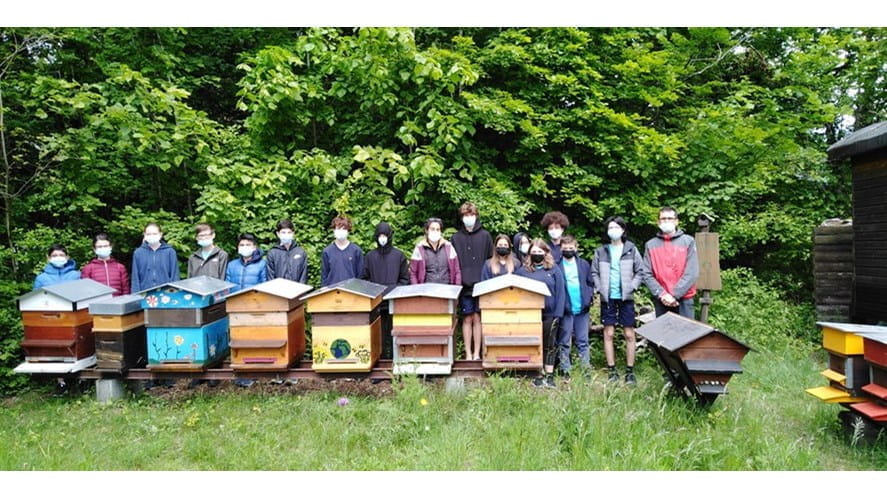We use cookies to improve your online experiences. To learn more and choose your cookies options, please refer to our cookie policy.
Join Our Open Evening!
24 February 2026 | 17:00 - 19:00 | LCIS

Inter-curricular learning supports our students to place their learning in a broader context and deepen their understanding of the world in which they live. Providing tangible, relevant learning experiences for our students is therefore at the core of our teaching and learning philosophy.
As part of the Fête de la Nature week, the Year 8 French students of Mr Buré and Mrs Belkhadir had the opportunity to see bees and beehives in action.
After painting the hive and learning vocabulary about bees last November, the students were welcomed by beekeeper Guillaume Schneider to visit his hive and see how a hive grows and functions.
Bees play an important role in the balance of our ecosystem and in the pollination of crops. More than 75 per cent of the world's food crops depend on pollination to varying degrees. Unfortunately, bee colonies around the world are currently facing serious colony losses due to diseases and harmful pesticides. Set up last academic year, the LCIS Bee Project focuses on raising awareness about the need to protect biodiversity and links to Global Goal 15 - Life on Land, whilst at the same time supporting a sustainable, not-for-profit apiculture in our local community by sponsoring a beehive in Aubonne and the harvest of honey. At LCIS, we foster such close relationships with our local community that allow us to provide transformative learning experiences that are relevant and tangible, helping our students build a broader context to their learning and become active members of the community, with the skills and attitudes necessary to help positively shape the environment in which they live.
And so, this was an excellent opportunity to practice the vocabulary learned in class in a different context and to confirm the information learned in class with a beekeeper.
The visit ended with a honey tasting provided by Guillaume. The students then asked questions about the upcoming vote on a possible ban on the use of pesticides, currently fiercely debated in Switzerland, showing that they are actively engaged citizens capable of making responsible and thoughtful decisions.
Here are some of the students' comments after the visit:
Sofia: "De cette visite j’ai aimé le contact avec la nature que nous avons eu. J’ai appris qu'une colonie d'abeilles est vraiment très organisée et j’ai appris qu'une abeille ne peut rien faire toute seule. Je me souviendrai toujours de l’image des abeilles qui travaillent dans relâche pour leur communauté!"
Madelief: "I liked learning about the different jobs that bees do and how you extract the honey from the bee hive. I learned that the bees must make the whole hexagon structure in the dark and that different groups of Bees createdifferent sections of the hexagons, and I will remember that there are about 50 thousand bees in one hive."
Stijn: "I liked a lot that we got the chance to visit and see the side of nature that you can't see in the wild. It was fascinating to see the bees doing their everyday job in their hive and collecting the pollen from flowers. I learned that we have to be more careful with what we do in our everyday life that could affect the extinction of bees, because without bees, our food that we would buy normally would disappear by 2/3. I will remember the fascination and the joy I had on the trip."
Maggy: "J’ai aimé beaucoup la visite aux ruches, parce que c’était super amusant et j’ai beaucoup appris sur les abeilles. J’ai aimé voir les abeilles travailler dans la ruche, et aussi manger le délicieux miel des abeilles. J’ai appris que les ruches ont des différentes sections, une pour la reine, où elle pond les œufs chaque minute pendant que les abeilles ouvrières la nourrisse. Et l’autre section, où les abeilles ouvrières font du miel et de la cire."
The school will receive 40 jars of honey from "their" beehive and we will be happy to sell them to you.